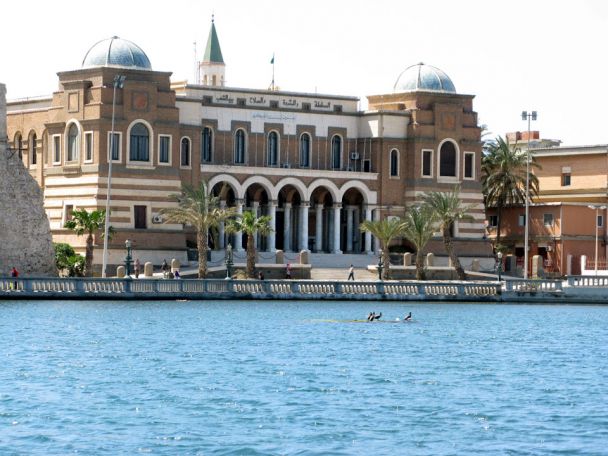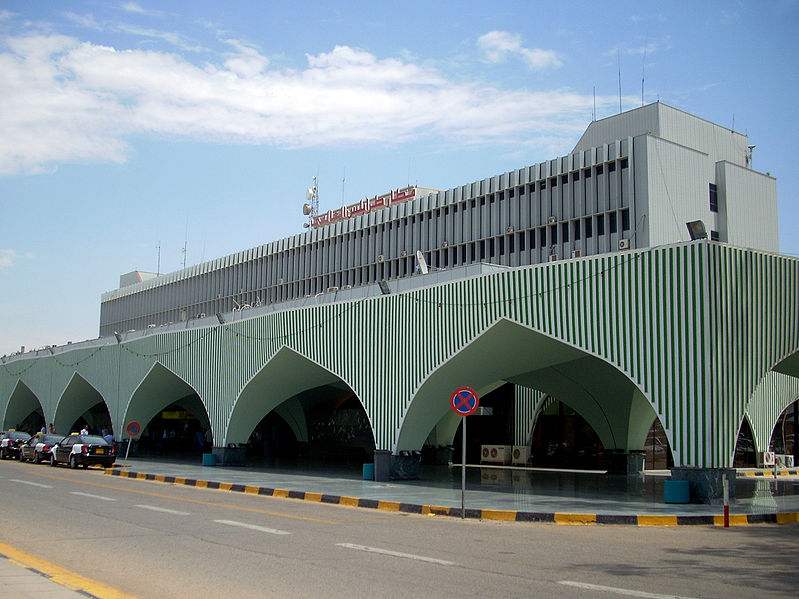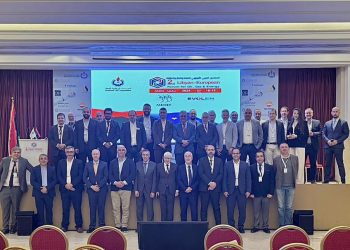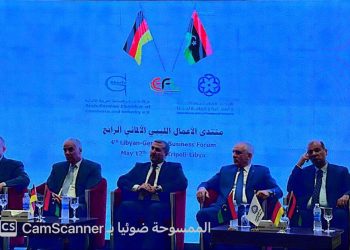By Motasim Elalem.
Tripoli, 28 June:

Since his appointment last year, Libya’s Central Bank governor Sadek Kabeer has been accused of many things. . . .[restrict]How ironic, therefore, that the achievement of his which has drawn the most widespread praise – Law 46 – is the one most worthy of criticism.
From the outset, Kabeer’s appointment was controversial. It has been alleged that he is a Qaddafi loyalist on account of his former position as chairman of the Umma Bank under the old regime. This latter appointment came shortly after his return from the United States with no serious prior experience or academic qualification to run Libya’s largest local bank. Kabeer was subsequently imprisoned when the Umma Bank was found to be insolvent, although he was later exonerated and continued his career with the Arab Banking Corporation (ABC).
I do not intend to draw more attention to these accusations, which are widely known. My problem with the governor is not his past, nor that he was appointed by a temporary legislative body, rather it is the fact that he is undertaking long-term decisions which contradict the temporary nature of his assignment. As temporary governor, he should focus on the temporary issues he was appointed to deal with rather than make legislative changes which we may be stuck with for years.
Law 46, which amends Libya’s banking Law 1 of 2005, is hailed as the solution to bring Islamic banking to Libya, having added a section to the old law specifically dealing with this issue. But we already have Islamic windows which offer Islamic banking products. So why the rush? Why not wait until we have an elected parliament to deliberate our laws?
Shouldn’t the Central Bank focus on more important and immediate matters such as the liquidity crisis? If I am receiving text messages signed by Sheikh Sadeq Ghiryani explaining that making deposits into banks is rewarded – clearly there is still a liquidity crunch. Clearly Sheikh Sadeq isn’t talking about Islamic banks which need our deposits before the economy collapses.
Instead the Central Bank has been preoccupied with printing new money, setting up an asset recovery initiative (though the government has already created a committee to deal with this) and expanding its powers through this amendment labeled as the Islamic Banking law. Don’t get me wrong – I am thrilled to have Islamic Banking in Libya – Allahu Akbar.
However, under the Islamic veil are changes to the mandate of the Central Bank which cannot be executed by a temporary government. Given that the legislation adds a new section to the banking law and suggests that this is temporary to be replaced by a permanent Islamic Banking law, why pass it in the first place? When the Islamic section is uprooted to become its own law it will not take the other changes with it.
The law begins by reinforcing the objectives (mandate) of the Central Bank and emphasising its supervisory role. The bank is now clearly responsible for the supervision and regulation of commercial banks, currency exchange businesses and even leasing for the benefit of shareholders. The irony is that the Central Bank is the main shareholder of the banks that hold 90 per cent of banking assets and its track record of supervising and regulating its own banks is terribly poor.
It is the Central Bank’s subsidiary banks that have made inappropriate loans. The Central Bank should not be concerned with the interest of shareholders; they can look after their own interests. The Central Bank should get out of the banking business and stick to setting the rules and enforcing them. It should stick to policy. It should not be going after stolen regime assets; it should focus on preserving what we have.
The law also changes the rules governing banks investing in other banks. Whereas it was specifically not allowed before, the amendment now gives the governor the power to allow banks to invest in other banks – both locally and abroad. So when the ABC owned by the Libyan Foreign Bank, which is owned by the Central Banks, applies to acquire a local bank or to set one up, the governor can approve it. In this case the Governor will be approving his own request as Chairman of ABC.
The same law goes on to say that the governor, the deputy governor and the members of the board – which the new law has increased by an additional two members for a total of eight – cannot have a conflict of interest. That clause has not been amended.
Another expansion the Central Bank’s powers snuck in the law is that it is now the body that is tasked with licensing and regulating investment management and funds. This contradicts the Capital Market Authority (CMA) law (No 11 of 2010) which clearly gives the CMA powers to license and regulate such activities. Why should this power be given to the Central Bank? I thought we were tired of centralisation and domination. Why, when the CMA has not even had the chance to begin? Is the intention to minimise state institutions which could create meaningful and important technical jobs? Or is it because the Central Bank has been such an effective regulator of banks and has fixed the inflation problem and the liquidity crisis and has recovered all the stolen money and now has nothing better to do?
The Central Bank already collects all the country’s revenue; controls the spending; controls the banks; controls the money supply; controls the interest rates; and regulates and supervises banks and all other financial institutions. With this new law even private investors undertaking private investments for the benefit of the economy and to create jobs have to apply for permission from this very busy and so far failed institution!
I say failed because a quick survey of central banks across the world will reveal that the mandate of a central bank is “to maintain price stability”. Something, which the Central Bank has failed to do.
Credit where credit is due, the Central Bank has created some jobs in Libya. It has expanded the minimum number of board members from five to nine – with the bank reserving the right to object to any nominated board member. That creates well over 100 jobs so long as people do not have 13 board seats at once. But the requirements that a board member must not have been sentenced for a crime involving a breach of trust or been dismissed or removed pursuant to disciplinary or judicial decision is still in place.
This is an institution which badly needs to focus on getting its own house in order and addressing Libya’s immediate problems now. Occupying itself with long-term policy commitments such as Law 46, which extend well beyond the transitional period, should be left for another day.
Motasim Elalem was a bank regulator with the Federal Reserve in the United States from 2001 before returning to Libya 2006. He is now corporate finance advisory partner at Rashad. [/restrict]









